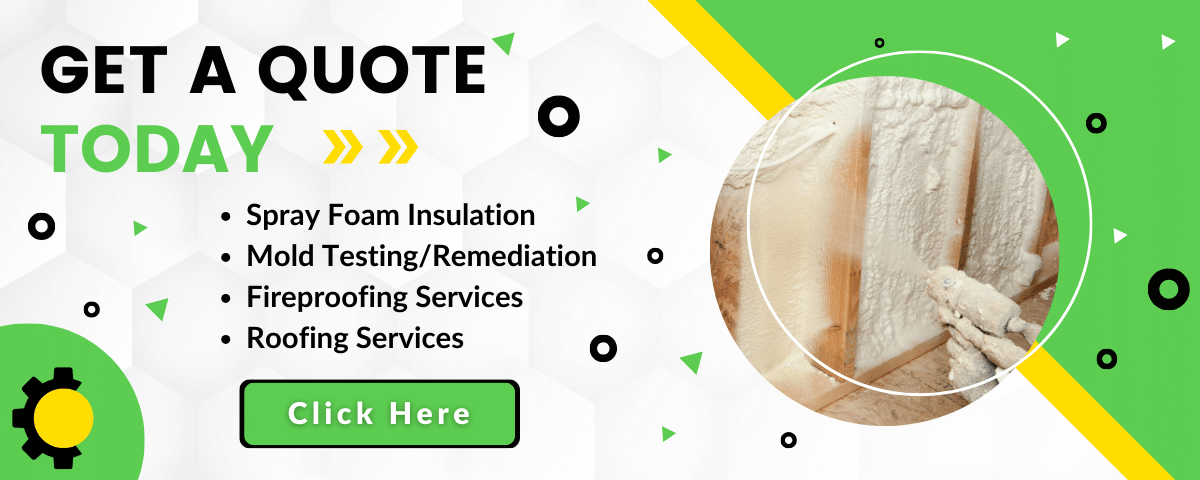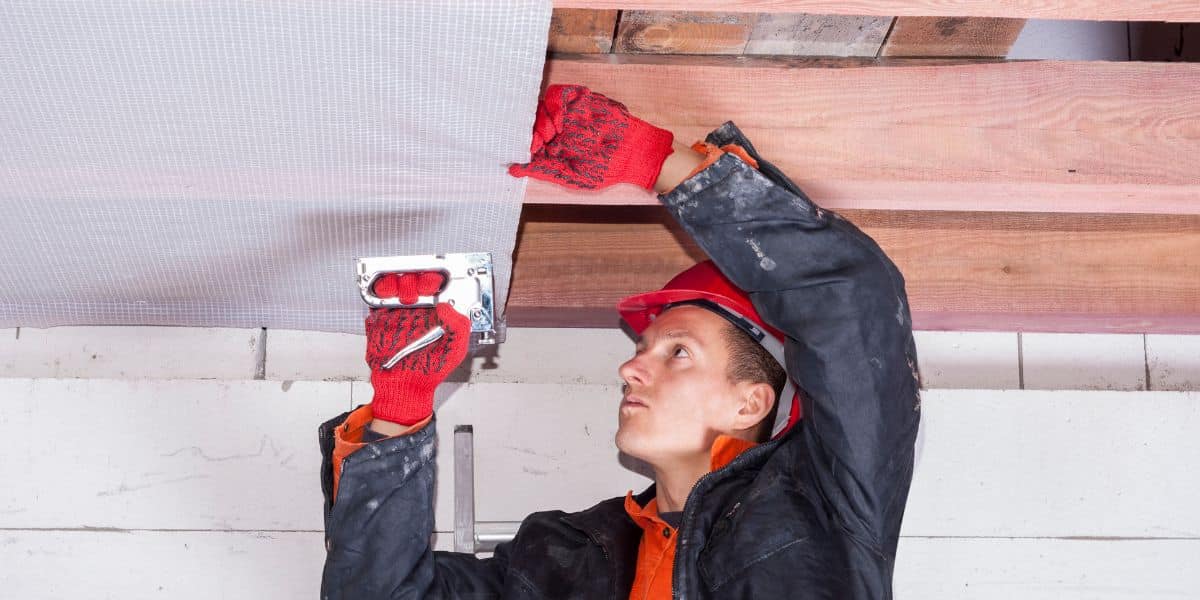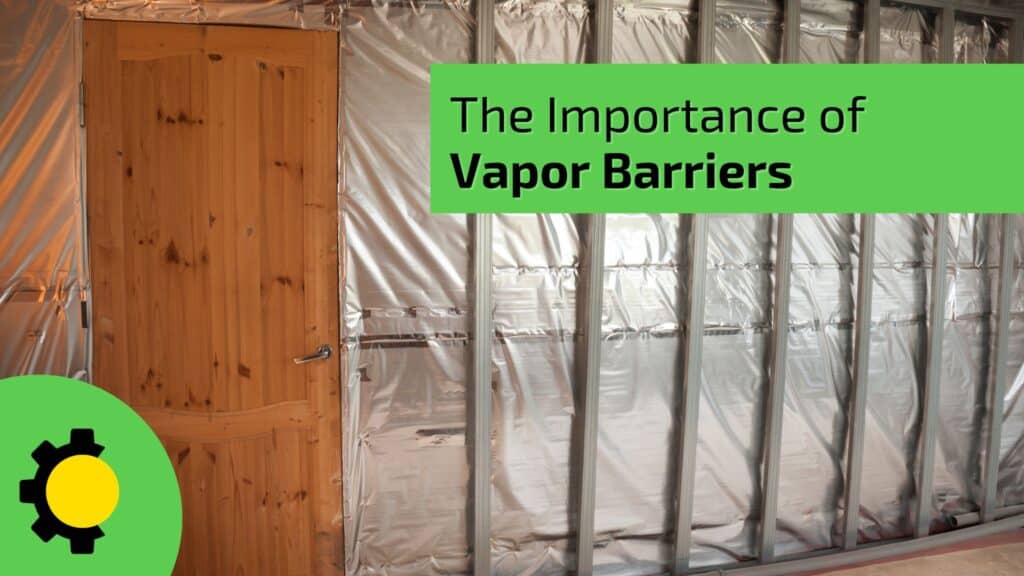Is your home feeling humid and stuffy, even with the AC blasting? Are you noticing a persistent musty smell you can’t seem to get rid of, or are your energy bills creeping higher each month? You might blame your air conditioner, but the real culprit could be hiding within your walls. The key to a comfortable, efficient, and healthy home isn’t just about how much insulation you have, but how well that insulation is protected. This is where a crucial, yet often overlooked, component comes in: the vapor barrier.
What is a Vapor Barrier?
In simple terms, a vapor barrier is a material designed to stop moisture from passing through your home’s structure. Think of it like a high-tech raincoat for your house. It’s a shield that stands between the humid outside air and the building materials of your home.
Here in Louisiana, we are in a constant battle with humidity. Moisture is always trying to find its way into our homes, and it can travel right through building materials like drywall and wood. A vapor barrier, also known as a vapor diffusion retarder, is your primary defense. It’s installed as part of your home’s insulation system to keep your insulation dry and protect your home from the damaging effects of excess moisture.

How Moisture Compromises Your Insulation
When moisture gets into your insulation, it’s like getting your coat wet in the rain. It just doesn’t work as well. This is especially true for common insulation types like fiberglass and cellulose. When these materials become damp, they compress and lose their thermal resistance, or R-value. This means your home loses its ability to resist heat transfer, forcing your HVAC system to work overtime and driving up your energy bills.
The consequences go far beyond cost. Persistent moisture in your insulation creates the perfect breeding ground for mold and mildew. This not only produces that musty odor but can also lead to poor indoor air quality and potential health issues for your family. Over time, that trapped moisture can even cause the wooden framing of your home to rot, leading to serious structural damage and expensive repairs. Protecting your insulation isn’t just an option; it’s a critical defense for both your wallet and your home’s well-being.
Insulation & Vapor Barriers: What You Need to Know
Understanding how your insulation choice interacts with moisture is key to creating a successful system. Different materials have very different needs, especially in the humid climate of the Gulf South.
Traditional Insulation (Fiberglass & Cellulose)
Traditional insulation materials like fiberglass batts and blown-in cellulose are effective at trapping air, but they are also highly permeable to moisture. On their own, they act like a sponge, soaking up humidity from the air. This is why these insulation types require a separate, dedicated vapor barrier. Typically, this is a plastic or foil sheeting (polyethylene) that must be meticulously installed, sealed at every seam, and free of any punctures to be effective. If there are any gaps or tears, moisture can get in and become trapped, leading to the problems we discussed earlier.
Spray Foam Insulation: The All-in-One Solution
Modern insulation technology offers a more integrated and effective approach. Spray foam insulation is applied as a liquid that expands to fill every crack and crevice, creating a powerful seal. It comes in two main types, each with unique properties regarding moisture:
Closed-Cell Spray Foam
This is the ultimate defense against moisture. Closed-cell spray foam has a dense, rigid structure that makes it impermeable to both air and water vapor. When professionally installed, it functions as a high-performance insulator, a potent air barrier, and a true vapor barrier all in one application. It doesn’t just block moisture; it adds structural integrity to your walls, making it a superior choice for attics, walls, and crawl spaces where humidity is a major concern.
Open-Cell Spray Foam
Lighter and less dense than its closed-cell counterpart, open-cell spray foam is an exceptional air barrier and soundproofer. While it effectively stops airflow, its softer structure allows water vapor to pass through it more easily. This makes it a “vapor retarder” rather than a true barrier. In certain applications, this breathability can be an advantage, but it’s crucial to have an expert determine where it is best suited for your home’s overall moisture management plan.
Where Are Vapor Barriers Most Critical in Your Home?
While a whole-home approach is best, some areas are more vulnerable to moisture intrusion than others. For Louisiana homeowners, these are the critical zones that demand proper vapor and air control:
- Crawl Spaces: As a major source of ground moisture and humidity, an unprotected crawl space can pump gallons of water vapor into your home every day. This leads to musty odors, buckled floors, and mold that can spread throughout the house. A properly installed vapor barrier on the crawl space floor (a key part of crawl space encapsulation) is one of the most effective upgrades you can make.
- Exterior Walls: Your walls are the primary barrier between the humid outdoor air and your conditioned living space. Without an effective vapor barrier, moisture can seep through, saturating insulation and leading to hidden mold and rot within the wall cavity.
- Attics: In our hot, humid climate, the main concern for attics is preventing moisture from your living space from rising into the attic. When this warm, moist air hits the cooler roof deck at night, it can condense, dripping water onto your insulation and ceiling joists. A properly sealed ceiling plane acts as the primary barrier to prevent this.

Sunlight Contractors: Your Local Insulation & Moisture Control Experts
Navigating the complexities of insulation, air sealing, and vapor barriers isn’t a DIY job. This is especially true in a climate as demanding as ours. Making the wrong choice can trap moisture and cause more harm than good. That’s where we come in.
At Sunlight Contractors, we are Louisiana’s building science and insulation specialists. We don’t just sell products; we provide comprehensive solutions tailored to the unique needs of your home. Our team can perform a home energy assessment to pinpoint where your home is losing energy and letting in moisture. Whether your home needs the all-in-one protection of closed-cell spray foam, a fully encapsulated crawl space, or an expertly air-sealed attic, we have the tools and training to get the job done right.
Don’t let moisture compromise your home’s comfort and integrity. Contact Sunlight Contractors today for a free consultation and take the first step toward a healthier, more energy-efficient home.
Conclusion: A Healthier, More Efficient Home
Your insulation is only as good as its protection against moisture. A vapor barrier is not a luxury. It’s an essential component of a high-performing insulation system that protects your home’s structure and your family’s health. By understanding your options and choosing an integrated solution like closed-cell spray foam, you can effectively combat our region’s relentless humidity. Remember, proper installation is everything. Investing in a professional ensures you achieve the long-term benefits of lower energy bills, superior comfort, and the peace of mind that comes from a healthy, well-protected home.

